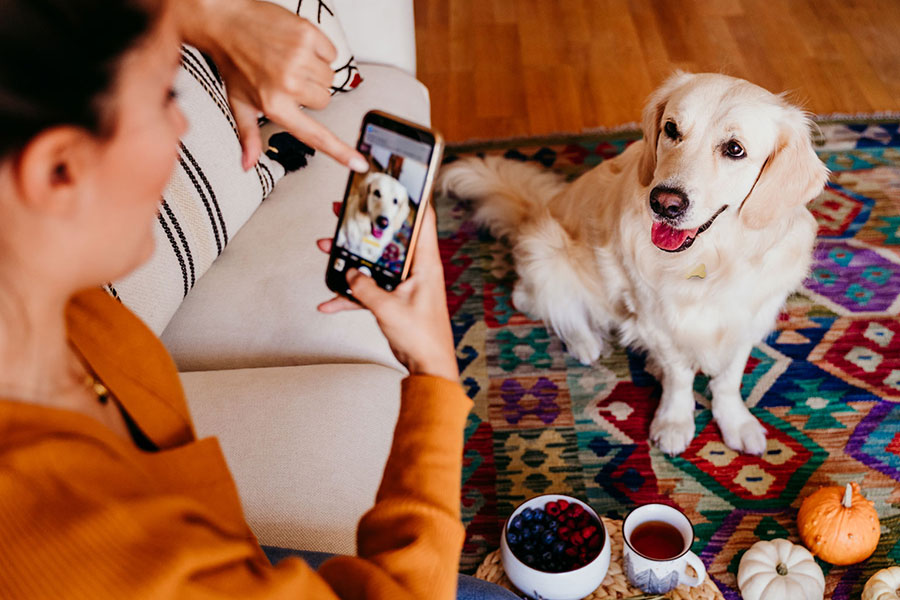
Whether it’s stuffed in a toy or licked straight from the spoon, creamy or crunchy peanut butter can be a nice treat for our canine friends – in moderation, of course. A scoop of peanut butter can make for a pleasant surprise for a pup or serve as a little incentive to get the medicine to go down. However, while many peanut butter brands are harmless to dogs, certain types contain xylitol, an artificial sweetener that can be deadly if consumed by dogs.
The Dangers of Xylitol
Xylitol serves as a sugar substitute for humans, but it certainly doesn’t work the same for our pets. If a dog consumes a product containing xylitol, they can experience a rapid drop in blood sugar, diarrhea, seizures, liver failure, and even death. Before offering your pup a tasty dab of peanut butter, be sure to review the product’s label to make sure it doesn’t contain any xylitol.
What to Do in Case of Xylitol Ingestion
In 2014, the ASPCA Poison Control Center received nearly 4,000 calls due to xylitol-related incidents. If your pooch accidentally consumes a product that uses xylitol, like certain brands of peanut butter, you will want to call the ASPCA Animal Poison Control Center or take your dog to your veterinarian or emergency care facility as quickly as possible. You can attempt to raise their blood sugar by rubbing corn or maple syrup on their gums – this is only a temporary solution, though. Also, be sure to bring the packaging for whichever product they consumed with you to the veterinarian.

Signs Your Dog May Need Emergency Care
There are several signs your dog may display that indicate a medical condition, especially if they’ve consumed xylitol or another poisonous substance. If your pooch exhibits pale gums, rapid breathing, weak or rapid pulse, change in body temperature, staggered walking, trouble standing, seizures, or unconsciousness, you will need to seek medical treatment immediately.
What Else to Watch out For
Be on the lookout for the combination of the letters “xyl” in any ingredient found in peanut butter or other foods your pup could accidentally get into. The letters “xyl” are actually a synonym for xylitol. Some examples of ingredients that contain xylitol include: 1,4-Anhydro-D-xylitol, xylite, anhydroxylitol, D-xylitol, and xylitylglucoside. Those are some big words and they can pose an even bigger threat to your dog’s health.

Simple Recipe Option for Dogs*
One way to be sure you don’t accidentally serve your dog something poisonous is to make some puppy treats at home. This way you will know exactly what you’re feeding your pal. One popular recipe that pet parents can easily make is PB&Y[ogurt] Balls.
Follow these directions to make these tasty, protein-rich treats:
Ingredients
- 2 C flour
- 2 T peanut butter
- 12 oz. plain yogurt
Directions
Combine ingredients and let set for five minutes. Form small balls and place in a muffin pan. Bake at 350° for about 20 minutes.
After they cool, PB&Y[ogurt] Balls are best enjoyed with a wagging tail.
Being a pet parent can be incredibly rewarding – what’s better than coming home from a long day at work than being greeted by a perky pup. However, it can also be challenging to keep them safe, especially when seemingly harmless things, like certain brands of peanut butter, can actually be fatal. One way to help protect your pet is an ASPCA Pet Health Insurance plan. With a pet health insurance plan, your pup has coverage for emergency visits and pet parents can make medical decisions based on care rather than cost. Get a free quote now!

* Do not feed to dogs with dairy allergies
(opens new window)
Helpful resources for pet parents
Browse categories
-

Pet Social Media Influencers: How-To and Who’s Trending
Social media for pets has taken online platforms by storm. From Facebook and Instagram to YouTube and TikTok, learn how to create a profile for your pal.
-

What Is My Pet Trying to Say?
Pets can’t talk to us, but they have other ways of communicating.
-

All About King Charles Spaniel, aka English Toy Spaniel
Affectionate, docile, and a great lap dog, there are many reasons to love King Charles Spaniels.

Browse Categories
(opens new window)
